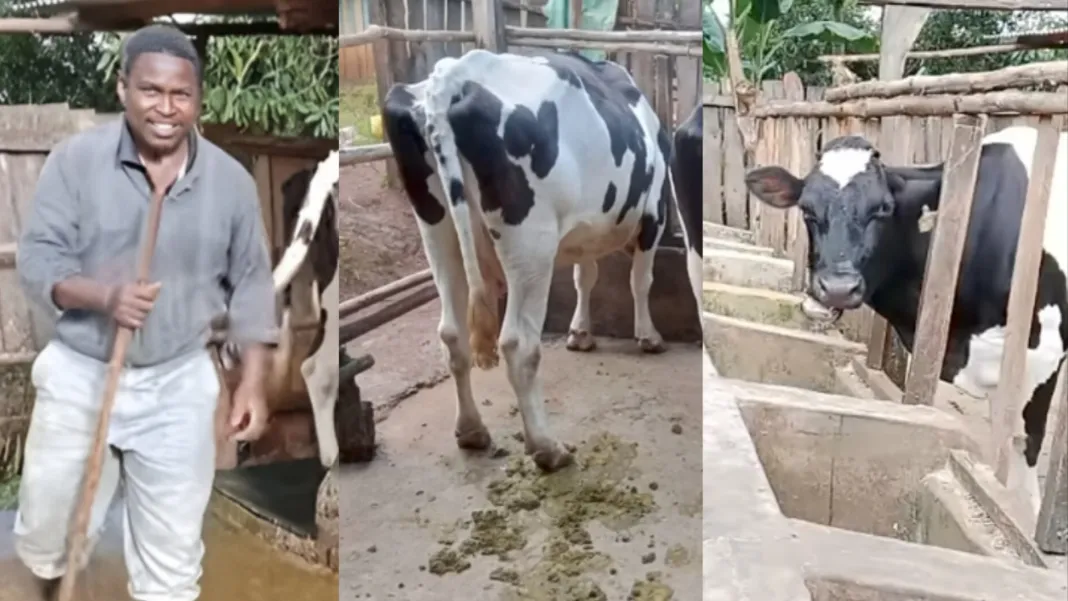Paul, a former high school teacher, made a life-changing decision to leave his formal job and pursue dairy farming, a venture that has proven to be far more lucrative.
Today, Paul earns three times his previous salary, thanks to his dedication and innovative approach to agribusiness.
Paul’s journey into dairy farming began after four years of teaching.
Dissatisfied with the limitations of his teaching salary, he decided to invest his savings into a 50 by 100 plot of land.
With this modest piece of land, Paul built basic structures and purchased his first Ayrshire cow, which had the potential to produce up to 10 liters of milk after calving.
However, in pursuit of higher yields, Paul later sold the Ayrshire and bought a Friesian cow, capable of producing up to 18 liters of milk after calving.
Transitioning from teaching to farming was not without challenges.
Paul had to learn the ropes of dairy farming, relying heavily on training and mentorship from experienced farmers. His persistence paid off, and he soon began to see improvements in his farming techniques and productivity.
“When you begin something and find that there’s an improvement, you get enough courage to move on with whatever you’ve been doing,” Paul said.
One of the major hurdles Paul faced was disease management.
At one point, his cow contracted mastitis, a common but costly disease in dairy farming.
Treating the cow was expensive, and Paul soon realized that the disease was due to a poorly constructed shed. To address this, he secured a loan of Ksh 80,000 from a SACCO and rebuilt the shed, ensuring a healthier environment for his cows.
Paul also tackled the high cost of feeds by formulating his own. He created a nutritious mix using maize germ, wheat bran, pollard, and supplements such as cottonseed cake, canola, sunflower, and fish meal.
This not only reduced costs but also enhanced the health and productivity of his cows.
The financial rewards of dairy farming quickly became evident. Paul now earns three times what he did as a teacher.
“Dairy farming is quite different from a white-collar job, where you have to wait for a salary for 30 days. If you need Ksh 1,000, you just carry 20 liters to the market and you’ll get the money you need,” he explained.
In addition to milk, Paul also generates income by selling manure and calves. He emphasizes the importance of keeping health records for the cows to monitor their well-being and productivity.
“With good record keeping, you’ll know when a cow is taking you at a loss and know how to treat it. You’ll also know when your animal is at peak,” he advised.

